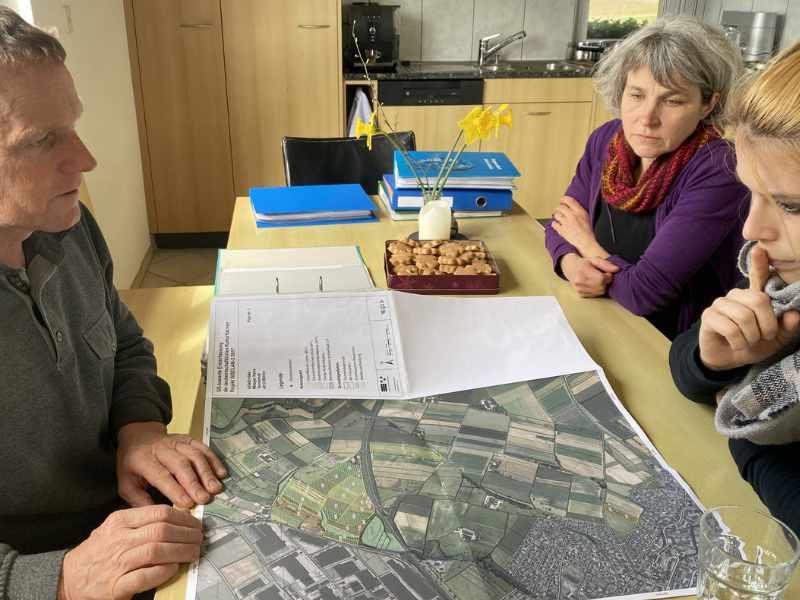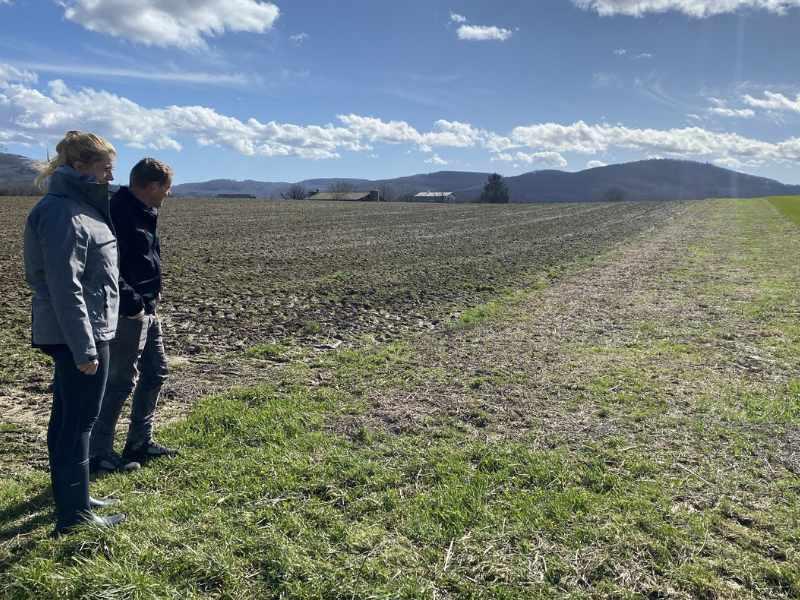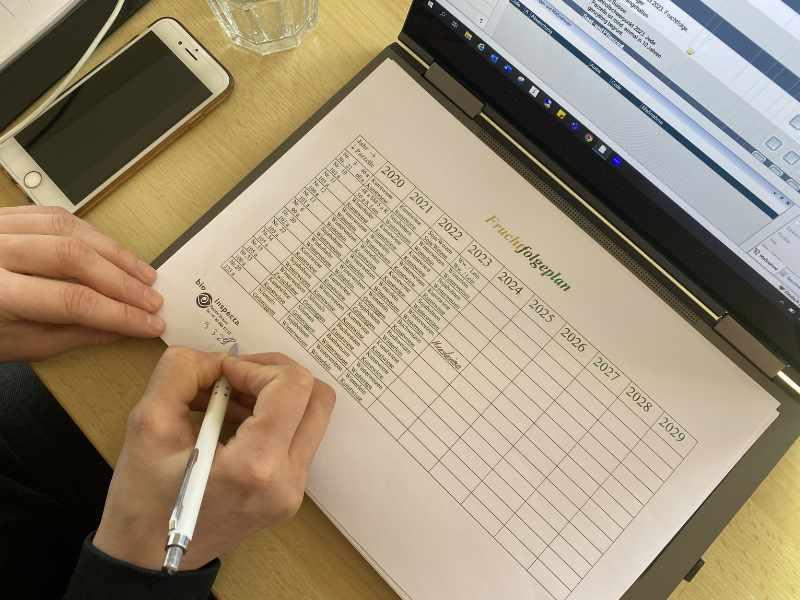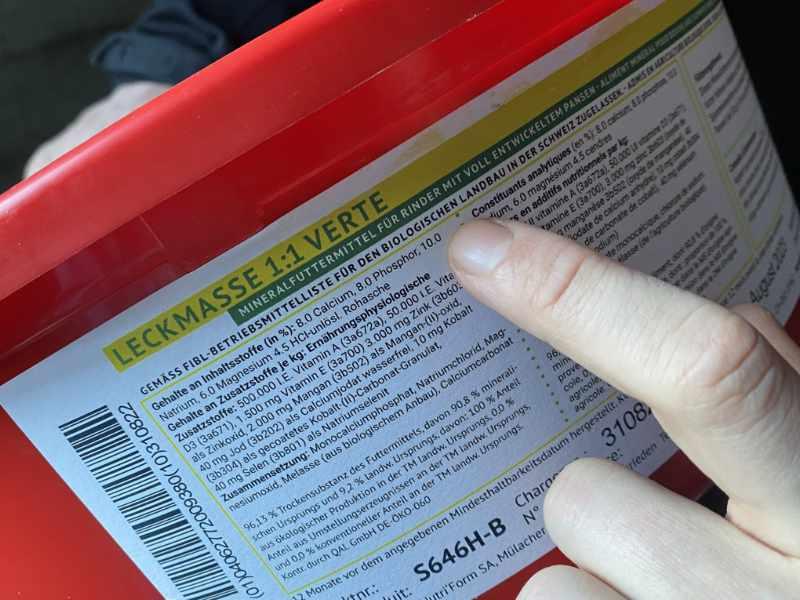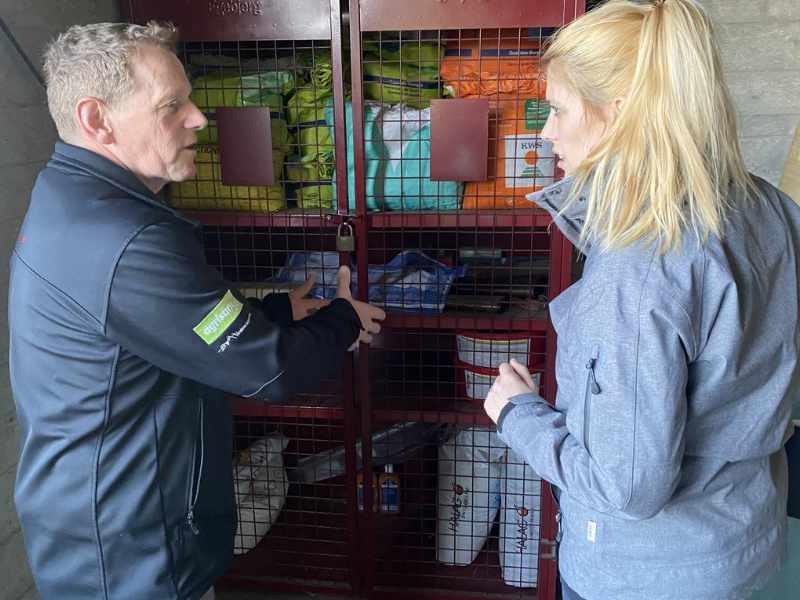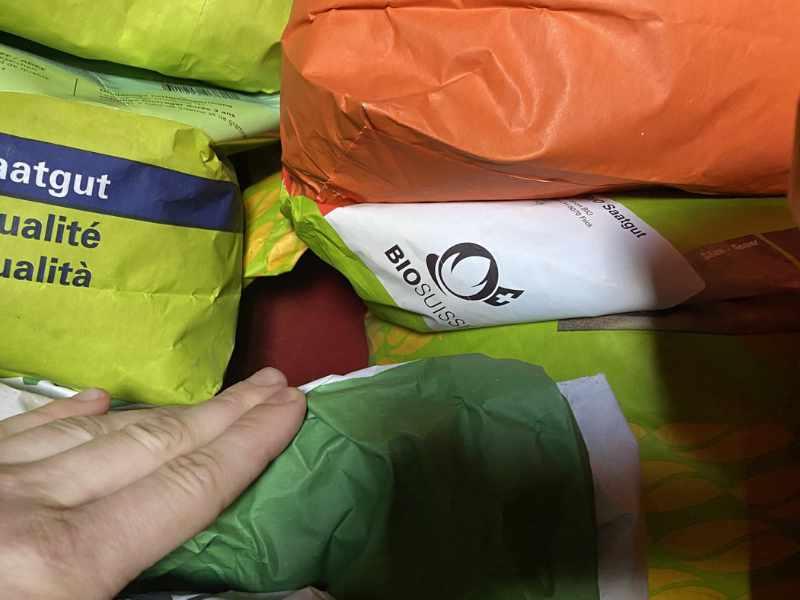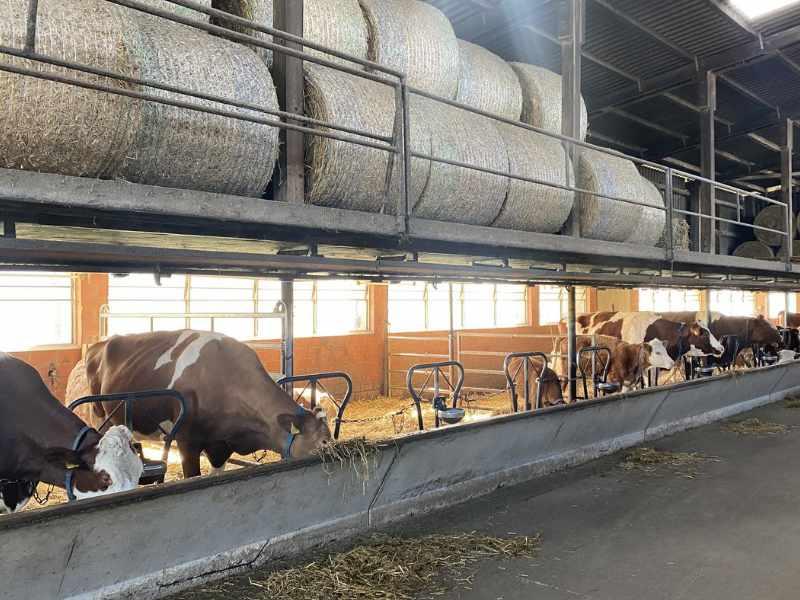
On the road with bio.inspecta
No fear of organic inspection: «I know that everything is legal», says Hans Metzger
The organic inspection is due at the Tannenhof. The arable and suckler cow farm was converted to organic in 2015. This year, the inspection will focus on crop rotation. Farm manager Hans Metzger is not worried.
The annual farm inspection is due again at the Tannenhof in Möhlin AG. Hans Metzger seems calm, not a trace of nervousness: «An inspection is an inspection. I'm not nervous, more tense, wondering if I've checked everything», he says. The documents of his organic farm are already piled up on the kitchen table. Next to them is a plate of biscuits that his wife Käthi has baked for the upcoming visit.
Company profile Tannenhof
Name: Hans, Käthi with son David Metzger (generation community)Location: Möhlin AG
Agricultural area: About 20 ha, of which 13 ha are arable land with winter wheat, winter flax, edible soya, buckwheat; artificial meadow, permanent pasture, extensive meadows and pastures
Livestock: 8 suckler cows and young cattle (Swiss Fleckvieh × Simmental), target 10 Angus suckler cows
Customer: Natura-Beef
The inspector, who runs an organic farm in Rickenbach ZH together with her husband, will carry out the organic inspection at Tannenhof this year. «We haven't had the pleasure of working with her yet», says Hans Metzger. To make an unbiased assessment, bio.inspecta makes sure to send a different inspector to the farm at least every third year.
Generational community with sonHans and Käthi Metzger converted their farm to organic in 2015. The farm conversion went surprisingly well, as Käthi tells the BauernZeitung. Yes, it is always challenging, but also exciting. «You work together with nature. The yields are not as high as before, but the quality is just as good,» she emphasises.
In 2018, they brought son David on board and established a generational community. They gave up dairy farming in 2022 and switched to suckler cows. «We had a stall barn, but when we look into the future, we ask ourselves whether that is still justified,» says Hans Metzger, explaining the decision at the time. In addition, 20 hectares of farmland are cultivated - apart from manure and slurry, the land receives neither additives nor biological pesticides.
Control from the outside in
When Pascale Strauss arrives, she is warmly welcomed as if they had known each other for a long time. After a brief exchange, there is no hesitation and they get straight down to business. Hans Metzger spreads out his plot plan so that Strauss can get an initial overview. «I like to work my way from the outside in. First, we go to the field and at the end we do the office work», the experienced organic inspector submits to the Metzgers.
As we walk across the plots, Pascale Strauss explains to the BauernZeitung what she pays particular attention to during the tour: «It is important to see which crops already exist in the fields. I then conclude from this, whether the crop rotation is being adhered to or whether other crops are being cultivated than those indicated. Whether buffer strips are present, or fertiliser balls are lying around, or silage bales are stored less than 3 m from the edge of the forest, to name a few things.»
Keeping the distance to the conventional neighbour
Metzger's land borders directly on that of his conventional neighbour. Here, the neighbour himself has ensured distance by creating a wildflower strip of 10 m between the two plots. «At least 3 m is recommended between a conventional and organic plot to prevent pesticide drift. So, in your case it is more than fulfilled», confirms the inspector to Hans Metzger.
After the field walk, the pesticide cabinet is now checked. Whether Hans Metzger is worried about it, the BauernZeitung asks him. «I know that everything I have in my cupboard is legal. So I'm not worried», he says with a smile.
Hans Metzger does not use any plant protection products. He only stores seeds and mineral feed in his cupboard. Pascale Strauss meticulously checks whether these are Bud seed. «Grass mixtures should contain a proportion of organic seed. But so far you can't get 100 per cent organic on the market», she says.
Where it does not say organic, Strauss notes down the names of the seeds to check the grading later and find out whether an exception permit is needed. The mineral feed must be listed on the FiBL farm inputs list. «This is usually written on the new labels», she points out. Strauss makes a note that everything is in order at Metzger.
A beautiful stable brings joy
The organic inspector notices: «You have a super orderly barn! It's a pleasure to see», she says enthusiastically. During the tour of the barn, Strauss makes sure that the animals look healthy and have enough space. The lying area is often the limiting factor, she says. With a barn area of 170 m2, Metzger's animals have enough space. The area for 10 suckler cows with feeding and lying area is sufficient, she says. He does not use any concentrated feed. It has no influence on health and fertility is equally good. Basic feed is not bought in. The suckler cows are registered in the new «Weide-RAUS» programme. From 1 May to 31 October, they are allowed to graze at least 26 times per month. From 1 November to 30 April, they are outdoors at least 22 times.
Focus on crop rotation
«I don't have anything to do there», jokes the organic inspector. She goes through all the farm data. The field calendar is also checked. «Here I make sure that records are basically available. I compare this with what I observed on the tour and learned from the conversation with Hans», says Strauss. She praises Metzger's field calendar, which is kept «in an exemplary manner». Because a well-maintained calendar is also an advantage for farmers themselves when they want to compare past years with each other. Hans Metzger already prepares the field calendar for the entire season. «I only have to enter the field work, which I always do in the morning with a coffee», he says.
Furthermore, Strauss controls the crop rotation, which is particularly important this year in the organic control. «From the conversion year onwards, the crop rotation must include 20 % artificial meadow and it must be cultivated on each rotation plot at least once in 10 years». Hans Metzger almost missed this. «You always learn something new. It's good that she pointed this out», he is relieved. Strauss points out to him that he will have to include artificial meadow in his crop rotation again by 2024/2025 at the latest.
The Metzgers have already submitted the biodiversity check. Bio Suisse requires this once a year. At least twelve points must be achieved; Metzgers have achieved 30 points. The run and treatment journal is also checked. In the latter, Strauss checks whether the double weaning period has been observed. With the herd and insemination card, it is important that the bull does not come from an embryo transfer.
Four eyes are better
The organic inspection is usually carried out between mid-February and the end of August. Depending on the size of the farm and additional inspection orders, it can take up to 6 hours. The organic inspection at Metzgers took about 5 hours.
Pascale Strauss will now send her inspection report to the certification body. They will also take another look at it: «We work according to the four-eyes principle», she says. After about 24 hours, the Metzgers receive the inspection report. If they are not satisfied with it, they have the right to contact the inspection body within three working days.
Typical errors
Common errors found during an organic control (not exhaustive):
- Deficiencies in water protection, e.g., dung heap near water bodies.
- Deficiencies in animal welfare, e.g. soiled animals.
- Non-organic farmyard manure supplied without proof of non-availability.
- Lack of biodiversity check.
- Lack of nutrient balance.
- Non-existence of contract processing agreements.
- Absence of salmonella testing.
- Non-organic animals purchased without authorisation.
- Animals not correctly marked.
- No or inadequate free-range journal.
- Declaration on labels not complied with.
- Non-organic feed/minerals used.
In the case of deficiencies on the farm, these are assessed in the certification according to the sanctions catalogue and must be rectified by the farm. In the case of serious deficiencies and especially in the case of repeated deficiencies, this can lead to the withdrawal of the Bud label and the threat of reductions in direct payments.
Published in the BauernZeitung of 26 May 2023

